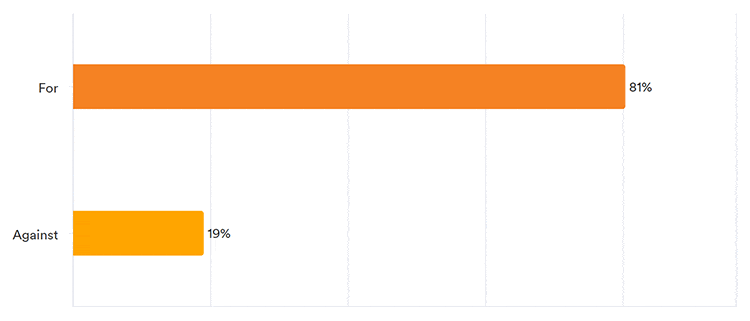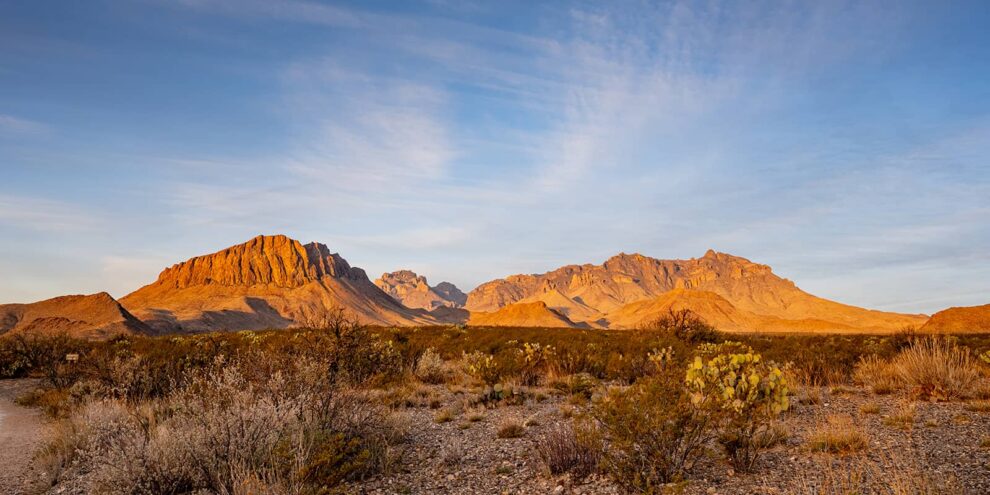According to the LANDTHINK Pulse results, 81% of our audience overwhelmingly want energy independence and believe the U.S. government should encourage increased oil and gas exploration on public lands to reduce America’s dependence on foreign sources of oil and gas. When Joe Biden was elected President of the United States, he came into office with aggressive plans to leave oil and gas behind to embark on a green transition, by calling for a global shift to renewables such as solar and wind, as well as making advancements in electric cars and upgrading the nation’s power grid. One of Biden’s signature campaign promises was to ban drilling and fracking on public lands and on the first day of Biden’s presidency, he issued an executive order canceling the Keystone XL pipeline. Little did he know that an unforeseen Russian invasion of Ukraine would highlight and elevate the need for American energy independence. As the war stretches into its third month, oil and gas prices are soaring and energy policy is likely to be a major issue in the midterm election campaign.
Last month, the LANDTHINK Pulse posed the following question to our audience: Are you for or against increased oil and gas exploration on public land to promote the U.S. becoming more energy independent?

Public lands are areas of land and water that are owned collectively by U.S. citizens and primarily managed by the federal government, by a state or local government, or by a sovereign tribal nation. The federal government owns a whopping 640 million acres of land. If you were to add up all the acres owned by the federal government, it would equal roughly 28% of the total surface area of the United States. This land is held in trust for the American people, and primarily managed by four agencies: the National Park Service (NPS), the Bureau of Land Management (BLM), the United States Forest Service (USFS), and the United States Fish and Wildlife Service (USFWS). A small share of federal land is managed by the Department of Defense and other agencies. The remaining 199 million acres of public land is managed by state and local agencies.
Only about 10% of domestic oil and gas drilling occurs on federal land. The rest happens on private and state property. There’s a good case for why the Biden Administration’s policies have added to rising energy costs. The administration’s decision to halt new drilling permits on U.S. lands and their commitment to increase renewable energy output have dissuaded oil companies from increasing production. Oil companies understand that Biden’s priority is expanding clean energy technologies and they refuse to make risky investments. The oil and gas industry have more than 9,000 unused drilling permits on federal and tribal lands. The United States is already the world’s largest producer of oil and gas, and fossil fuel companies are actively choosing not to develop the permits and land that they already have access to.
As last month’s survey revealed, the majority of Americans strongly favor a policy of promoting domestic petroleum production. It wasn’t until the Ukraine invasion that energy production on America’s vast public lands came under such scrutiny on the world stage. While the invasion did not create the global energy crisis, it did sound the alarm about the United States’ and Europe’s growing reliance on Russian oil and gas. Instead of tapping into American energy production potential, the Biden administration has pursued short-term solutions like tapping into the Strategic Petroleum Reserve and requesting that foreign nations produce more oil. Bottom line: the U.S. must improve our independence and security for the future. The United States needs both renewable and conventional energy, and we need to ramp up production at home rather than rely on production overseas to replenish our energy supply. Energy independence is a national security necessity, and the U.S. must pursue an energy strategy that protects national security, reduces our dependence on foreign adversaries, and provides reliable, sustainable and affordable energy.
Last week the Biden Administration announced the cancellation of three major oil and gas lease sales effectively ending any chance that an offshore lease sale will be held any time soon. On May 11, the Department of the Interior withdrew drilling leases for more than 1 million acres in Alaska’s Cook Inlet and two areas in the Gulf of Mexico. The cancellations are not expected to impact current oil supply or prices since it usually takes seven to 10 years for offshore leases to actually produce fuel.
Fourteen U.S. states including Louisiana and Wyoming filed lawsuits on Wednesday against President Joe Biden’s administration, challenging his pause on new oil and gas leasing on federal lands and waters. The states joining Louisiana’s lawsuit included Alabama, Alaska, Arkansas, Georgia, Mississippi, Missouri, Montana, Nebraska, Oklahoma, Texas, Utah and West Virginia. The lawsuits allege the administration’s leasing pause violates the Mineral Leasing Act that requires quarterly lease sales.
Our informal online survey revealed that 81% of those responding are FOR increased oil and gas exploration on public lands. Only 19% of our audience said they were AGAINST boosting oil and gas exploration on public lands.
Do you have a suggestion for next month’s Pulse question? Submit your question and we might choose yours!
This content may not be used or reproduced in any manner whatsoever, in part or in whole, without written permission of LANDTHINK. Use of this content without permission is a violation of federal copyright law. The articles, posts, comments, opinions and information provided by LANDTHINK are for informational and research purposes only and DOES NOT substitute or coincide with the advice of an attorney, accountant, real estate broker or any other licensed real estate professional. LANDTHINK strongly advises visitors and readers to seek their own professional guidance and advice related to buying, investing in or selling real estate.







I live in Arkansas and I hold mineral rights on property that already have gas wells drilled on them. They hit gas and then capped the well in wait for the price to go up again. Well, the price is up but these wells are still capped! There are 1,000’s of capped wells that could be in production right now, but seems the oil companies are more interested in drilling on Fed lands and national Parks … I know the oil and gas companies will deny this, but if you own mineral rights, you are asking yourself why those drilled wells are still capped?